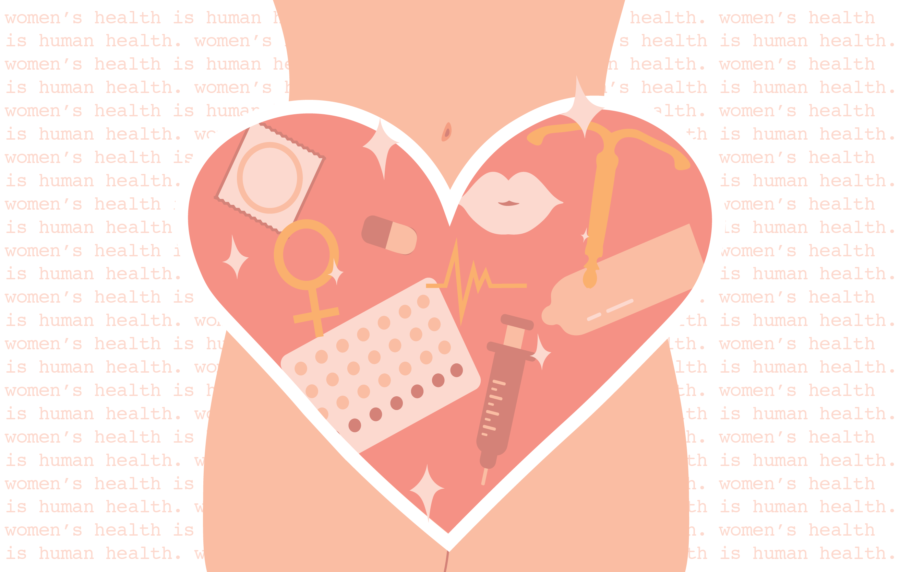Confronting the Stigma Surrounding Women’s Health
As women, we all know that our overall health is important; but do we take our reproductive health into such importance? Sure, some have a yearly visit with physicians, visit the dentist every six months but what about the relationship with our gynecologist? Many women experience overwhelming stress, that comes when visiting the gynecologist, as they feel a stigma surrounding their reproductive health. Sexually transmitted infections can go untreated, women can experience delayed diagnosis, and the stigma still prevails, but why?
One possibility is sex education. According to Guttmacher Institute, only 13 states require medically accurate sex education and Ohio is one of them. Safe sex and consent stems from sex education, and if not taught correctly, the issues will still continue.
Physicians often contribute to the stigma. According to the US National Library of Medicine National Institutes of Health, The average time a doctor goes over sexual health with their patient is 36 seconds, which can lead to feeling shame getting tested or talking about one’s sexual health. The shame some women feel from their doctors about STI testing is continuing to create a sex-negative culture. A Kent State student and sophomore fashion merchandising major who chooses to be anonymous said, “I feel like my gynecologist doesn’t take me seriously. They haven’t really given me any sort of information on how to be safe and what to watch for when it comes to my sexual health.”
In a study published by the International Journal of Obstetrics and Gynecology, it was found that ethically, Gynecologists and their professional associations have committed to upholding human dignity and equality, specifically for vulnerable women they care for, and while providing medical care, they should be working effectively to counteract stigmatization.
A third aspect is society. For decades now, many women have been shamed for being sexually free. The scales between the sexes have been off for far too long. When women are called names and are labeled as impure, it inevitably inflicts shame. However, men are rarely called names, or given shameful labels; it’s almost like they do not have sex at all.
According to several studies like The Iranian Red Crescent Medical Journal and The Department of Psychology at State University of New York, women feel a stigma surrounding reproductive health, especially young and unmarried women. They sometimes even go as far as to avoid using women’s health services. Even menstruation and breastfeeding still receive negative connotations. Many women feel fear of possibly being labeled or judged by others, or feel ashamed using reproductive health services. This stigma inflicts mental stress, fear, and depression.
One organization at Kent State is taking the initiative to reduce this prolonged stigma. Mackenzie Burchett, Vice President of Planned Parenthood Advocates of Kent State, is an advocate for both women’s health and Planned Parenthood.
“The main thing we need to promote is being an advocate for our health,” Burchett said. “It shouldn’t be a shameful thing, it can be uncomfortable because a pap smear isn’t a great time, but I think we need to frame it in a way that this is something that you need to do for your body, to take care of it.”
Burchett feels there is a lot of rejection to women having autonomy over their bodies. “When you stop treating people with uteruses like a baby factory and think of their health as something that is holistic, then they can have sex while also being healthy about it,” she says.
There is something to say for those who have a different view of sex, but Burchett expressed, “If you don’t want to have sex then don’t have sex, but don’t shame other people for wanting to do something because you have a value that says it is wrong, everyone doesn’t have that shared value.”
Burchett conveyed her current concern involving women’s healthcare, “When we defund and take things away like Planned Parenthood, which is such a vital service, we are really doing a disservice to those who use it. It makes people who need healthcare to get it at another place.”
This will push the stigma further, as women will feel their health is not important enough for government spending. Defunding Planned Parenthood because of a conservative agenda may even further the shame and guilt women feel. This is not just about abortions, but STI screenings, cancer screenings, pap smears, and birth control services – services that can save women’s lives.
It is a fundamental human right that every individual receives healthcare. However, there are still gaps when it comes to healthcare for women. Women have the ability to speak up and seek the correct health services without feeling shame or guilt. This is done by taking our health into our own hands, marching in the streets, educating the next generation, reaching out to our representatives, supporting our fellow sisters and brothers across the world and in our community, and demanding sexual health equality.
For more on women’s health, click here to check out our recent podcast on Sex Ed.












